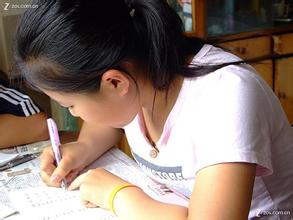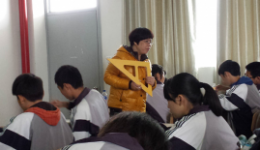R
realise / realize 意识到;实现
realize + (that) / wh- 从句:
Suddenly, I realized (that) I had made a mistake.
突然,我意识到自己犯了个错误。
receive 收到
receive sth from sb / sth:
We received a warm welcome from our host.
我们受到主人的热烈欢迎。
refuse 拒绝
refuse to do sth:
He never won a match, but he refused to give up.
他从未赢过一场比赛,但他拒绝放弃。

regret 后悔;遗憾;抱歉
regret doing sth:
I regretted doing such a silly thing.
我后悔做了这样的蠢事。
regret to say / tell …:
I regret to tell you that you didn’t pass the exam.
很遗憾地告诉你,你没通过考试。
remember 记得;记住;想起;纪念
remember doing sth 记得曾做过某事:
I remember meeting her at a party once.
我记得曾经在一次聚会上遇见过她。
remember to do sth 记着要做某事:
When you are in trouble, remember to ask for help.
遇到困难时,记着要求助。
● be remembered for 因……而著名
report 报告;报道
report (sb / sth) doing sth:
Some people reported seeing the boy.
有些人报告说见过那个男孩。
it is reported that …:
据报道下周日将有大雨。
require 需要;要求
require doing / to be done:
Most house plants require watering / to be watered regularly.
大部分室内植物需要定期浇水。
require sb to do sth:
You can require yourself to be nice to others, but you shouldn’t expect the same from others.
你可以要求自己善待他人,但你不应该期望别人也这么做。
require + that … (should) do sth:
School rules require that students (should) wear school uniforms at school.
校规要求学生在校期间穿校服。
result 发生;导致
● result from 因……发生;随……产生
● result in 造成;导致

S
search 搜寻;搜查;搜索
search (sth) for:
Lots of Chinese search for work in the cities.
许多中国人在城市里找工作。
see (saw, seen) 看见;看到
see sb / sth + adj :
I never saw him angry.
我从没见过他生气。
see sb / sth do sth:
In our school dining hall, I often see students waste food.
在我们学校的餐厅里,我经常看到学生浪费食物。
see sb / sth doing sth:
I could see smoke rising up.
我能看到烟正冒出来。
see sb / sth done:
We don’t want to see snakes killed.
我们不想看到蛇被杀死。
seem 好像;似乎
seem (to be) + adj / n :
She seemed (to be) smart.
她似乎很聪明。
seem like:
It seemed like a good idea.
这主意好像不错。
it seems + as if / though 从句:
It seems as if it is / was going to rain.
看起来要下雨了。
it seems (to sb) + (that) 从句:
It seemed (to Peter) that losing weight was difficult.
(对皮特来说,) 减肥似乎很困难。
seem to do sth:
His bright musical life seemed to end.
他光辉的音乐生涯似乎要结束了。
sell (sold, sold) 卖;出售
sell sb sth / sell sth to sb:
He sold James his car. / He sold his car to James.
他把车卖给了詹姆斯。
● sell sth for 以…… (的价格) 出售某物
● sell out / be sold out 售完
send (sent, sent) 邮寄;发送;打发;送往
send sb sth / send sth to sb:
I’ll send you a photo of him. / I’ll send a photo of him to you.
我会把他的照片发给你。
send sb to some place:
The woman became very ill, so she was sent to hospital.
这位女士病得很重,因此被送进了医院。
send sb to do sth:
We can send more teachers to help the African people.
我们可以派更多的老师去帮助非洲人。
● send away 解雇;把…打发走
● send for 派人去叫
● send out 发出 (光、信号、声音等);送出
set (set, set) 放;摆放;使处于;设置;树立
● set a new world record 创造一项新的世界纪录
● set about (doing) sth 开始 (做) 某事;着手 (做) 某事
● set aside 留出
● set down 记下;放下
● set off 出发;动身
● set out 出发;动身
● set up 设立;建立;创建
speak 说 (话);讲 (话);演讲;发言
speak to sb about sth
I haven’t spoken to Jane about all this.
这一切我还没跟简谈过。
speak with sb
When you speak with people from other countries, try to understand and respect their body language.
当你和来自其他国家的人说话时,尽量理解并尊重他们的身势语。
● speak of 谈到;提及
● speak up 大声说
spend (spent, spent) 花费
spend … on (doing) sth:
Don’t spend money on (buying) expensive clothes.
不要把钱花在昂贵的衣服上。
spend … on sth:
You should spend more time on your study.
你应该把更多的时间花在学习上。
spend … (in) doing sth:
That way, Grant could spend more time playing basketball.
那样以来,格兰特就能多花点时间打篮球。

start 开始
start to do sth:
I will start to learn Tai Chi and never stop in halfway.
我要开始学习太极拳,绝不会半途而废的。
start doing sth:
It’s never too late to start reading.
什么时候开始读书都不会太晚。
stop 停止
stop doing sth:
Please stop smoking now!
现在就请停止吸烟吧!
stop to do sth:
The garden is so beautiful that people want to stop to see it.
花园太漂亮了,人们都想停下来观赏。
stop sb / sth (from) doing sth:
We must do something to stop our earth (from) warming.
我们必须做些事情来阻止地球变暖。
suggest 建议;提出;表明;暗示
suggest doing sth:
I suggest buying her a Teddy Bear for her birthday.
我提议给她买个泰迪熊作为生日礼物。
suggest (that) sb (should) do sth:
The doctor suggests he take medicine three times a day.
医生建议他一天三次服药。
it is suggested that sb (should) do sth:
It is suggested that students (should) do more reading and writing.
建议学生们应该多读、多写。
suggest + (that) 从句:
All the facts suggest that he stole the money.
所有事实都表明是他偷了钱。
support 支持
support sb in (doing) sth:
His sister suppor ted him in his university study.
姐姐支持他上大学。
suppose 认为;猜想;假定
(be) supposed to be / to do sth
应该;理应:
We’re supposed to get along well and help each other.
我们应该友好相处、互相帮助。
被认为;被当作:
April Fool’s Day is supposed to be a day to play jokes on others.
愚人节被认为是开别人玩笑的一天。
T
take (took, taken) 带走;拿走;带着;花费
take sb / sth with sb:
The visitor takes some food with him when he leaves.
这个游客走的时候随身带了些食物。
take sb sth / take sth to sb:
Shall I take my host family a gift? / Shall I take a gift to my host family?
我给要寄宿的家庭带件礼物好吗?
take sb / sth to sth:
The mother took the kid to the park.
那位母亲带孩子去了公园。
take sb to do sth:
Let me take you to see the doctor.
我带你去看医生吧。
it takes (sb) sth to do sth
It took me five hours to get back home.
我回家用了5个小时。
● take sb’s advice 接受某人的建议
● take a test 参加考试
● take the medicine 服药
● take a bus / plane 乘公共汽车 / 坐飞机
● take notes / a photo 记笔记 / 照相
● take a bath / walk 洗澡 / 散步
● take a look at 看一看,看一眼
● take a rest 歇一会儿
● take after (外貌或行为等) 像 (长辈)
● take apart 拆开
● take away 拿走;带走;买外卖食物
● take down 拆除;写下
● take in 吸入
● take off 脱下 (衣、帽等);(飞机等) 起飞
● take on 接受 (工作)
● take out 把…带出去
● take up 开始 (从事);占用
talk 谈话;交谈;谈
talk (to / with sb) (about sb / sth):
It’s necessary for us to talk to our parents when we have problems.
当我们遇到麻烦时,有必要跟父母谈一谈。
British people often begin their conversations by talking about the weather.
英国人经常以谈论天气开始他们的谈话。
● talk back (to sb) 顶嘴;回嘴
teach (taught, taught) 教;教授;教育
teach sb sth / teach sth to sb:
She has made some friends who can teach her Chinese / teach Chinese to her.
她交了些能教她学汉语的朋友。
teach sb about sth:
The book teaches you about student teacher relationship.
这本书教你有关师生关系的知识。
teach sb (how) to do sth:
She taught me to read and write when I was young.
我小的时候她教我读书写字。
teach sb to do sth:
Our parents often teach us to behave at dinner table.
我们的父母经常教育我们在餐桌上要表现得有礼貌。
tell (told, told) 告诉;讲述;命令;吩咐
tell sb sth / tell sth to sb:
Tell me the address, please. / Tell the address to me, please.
请把地址告诉我。
tell sb about sth:
He never told his parents about his headaches.
他从未跟父母谈起过他头痛。
tell sb to do sth:
My parents often tell me to behave well.
我父母经常嘱咐我要守规矩。
tell sb + wh- to do sth:
They don’t like to be told what to do!
他们不喜欢被命令该做什么!
thank 感谢
thank sb for (doing) sth:
Thank you for lending me the dictionary.
谢谢你借给我词典。
think (thought, thought) 认为;思考;想
● think about 思考;考虑:
● think of 考虑;关心;想出;想起
● think of … as … 把……看作……;认为……是……
● think over 仔细考虑
● think up 想出
try 试;尝试;试图
try to do sth:
Whatever the boy had to do, he tried to do his best.
那个男孩不论要做什么,他都会尽全力去做。
try doing sth:
John isn’t here. Try phoning his home number.
约翰不在这儿,打他家里的电话试试。
(try doing sth 一般表示“尝试做某事”,含有试试看的意味;try to do sth 则表示“努力做某事”。)
● try on 试穿
● try one’s best (to do sth) 尽最大努力(做某事)
● try out 试验
turn 转 (身);转动;转弯;(使) 转向;(使) 变成;(使) 变为
turn + adj / n :
Stop your car when the traffic lights turn yellow.
交通信号灯变黄时要停车。
turn sth + adj :
The snow turns the whole world white.
雪把整个世界都变白了。
● turn around 转身;转变
● turn away 把…转过去
● turn back (使) 往回走
● turn down 关小;调低 (音量等)
● turn into (使) 变成;(使) 成为
● turn off 关 (水、煤气、电灯等)
● turn on 开 (水、煤气、电灯等)
● turn out 原来 (是);证明 (是);结果 (是)
● turn over (使) 翻转;翻过 (书页)
● turn to 求助于;转向
● turn up 开大 (声音等);出现
U-W
use 使用;利用;运用
use sth for (doing) / as sth:
What do you use it for?
你用它来做什么?
The rubber could be used as erasers.
橡胶可以用作橡皮。
use sth to do sth:
Wood can be used to make fire.
木材能被用来生火。
● use up 用光;耗尽
wait 等待;期待
wait for sb / sth:
Don’t cut in line when you wait for the bus at the bus stop.
在公交车站等车时,不要插队。
wait to do sth:
Are you waiting to use the computer?
你在等着用电脑吗?
wait for sb / sth to do sth:
I’m waiting for my mum to have dinner.
我正在等妈妈吃饭。
● can’t wait (to do sth) 等不及 (做某事)
● wait a minute / moment / second 等一下
● wait and see [用于叫某人耐心等待事情的结果] 等着瞧
want 要;想要
want to do sth:
What do you want to be when you grow up?
你长大了想做什么?
want sb / sth to do sth:
Mr Wu wants me to give a talk in class tomorrow.
吴老师想让我明天在课上作一个报告。
warn 警告;提醒;告诫
warn (sb) about / of sth:
She warned us about / of the danger.
她提醒我们要当心危险。
warn (sb) against (doing) sth:
The doctor warned the patient against smoking.
医生告诫这个病人不要吸烟。
warn sb to do sth:
Our school warns us not to play on the road.
学校提醒我们不要在马路上玩耍。
waste 浪费;损耗
waste sth on sb / sth:
Have you been wasting time on computer games?
你一直在浪费时间玩电脑游戏吗?
waste sth (in) doing sth:
Do not waste life lying in bed on Sunday mornings.
星期日早上不要躺在床上浪费生命。
watch 看;注视
watch sb / sth do / doing sth:
They watched the bus disappear into the distance.
他们注视着公共汽车消失在远方。
watch sb / sth done:
She watched the wounded soldier carried out of the house.
她看着那个受伤的士兵被抬出了房子。
wish 想;希望;祝愿
wish to do sth:
Some children wish to become actors, singers or police officers.
有些孩子想成为演员、歌手或者警官。
wish sb to do sth:
Why don’t you wish her to accept the job?
你为什么不希望她接受这个工作呢?
wish sb sth:
I wish you every success.
祝你一切成功。
wonder 对……感到惊讶;想知道
wondered about / at sth:
He wondered about / at her answer.
他对她的回答感到很惊讶。
wonder + wh- 从句:
I always wonder what life would be like without computers or mobile phones.
我总是想知道,如果没有电脑和手机,生活会是什么样子。
I wonder / was wondering if / whether … [礼貌的请求] (我) 不知是否:
I wonder if you can help me.
不知你是否能帮我。
worry (使) 担心;(使)忧虑
worry about / over sth:
There’s no need to worry about it.
没必要为此担心。
write (wrote, written) 写;书写;写信
write … about /on
Please write about your best friend.
请描写一下你最好的朋友。
write (to) sb:
Don’t forget to write (to) me.
别忘了给我写信。
write sth to sb / write sb sth:
I think we should write a letter to the headmaster about the problems.
我认为我们应该就这些问题给校长写封信。
● write back 回信
● write down 写下;记下
别想着一口吃个胖子,成为学霸要一步步来。如何学好初中英语,今天我们来重点说这个问题:
课后要重视复习,进一步巩固课堂所学。
我想同学们都有这样的经历:在考场上被一个固定搭配困住了。在想,这个搭配我前几天作业题中遇到过啊,什么意思当时记得清清楚楚,咋现在怎么想都想不起来了。
这种情况很常见,谁都会遇到。解决的关键在于常看(而非长看),多做复习,加深印象;最好还是有个规划。
学霸课后很重视复习,当然人家不会把学习方法告诉您。告诉您对人家有啥好处呢?班里的前三名只有三个,您的成绩上去了,对人家就是一种威胁啊。
我还要提醒一点儿的是,不仅仅单词需要去复习巩固,做过的阅读理解完形填空等题,也要抽时间去复习,特别是其中做错的题。
词汇量是学好英语的基础。有不少同学纳闷,单词为啥学霸们能记得很牢固?我怎么过段时间就忘了呢?记单词的诀窍,学霸们是不会告诉您的。
学霸们都会对照着来记忆英语单词,把拼写相近、意思接近的词汇与短语放到一起来背。我想同学们都有这样的经验,考试是完形填空题中四个选项给出的单词拼写非常相近,迷惑住了,不知道咋选。
学霸不会被难住,轻松做了出来。学霸在记忆单词时把这四个单词对照做了辨别,放到一起背,当然能很快拿下这道题了。我的初中英语自诊断这本书,把中考英语最核心的五百个单词进行了非常系统的梳理,每个单词的使用方法,都有我的视频讲解。
除了讲解该单词的使用外,还将与该单词拼写接近、意思相仿的单词和固定搭配都做了对照。这五百个核心单词和引申出来的单词、短语,基本上把所有中考英语试卷要求的词汇都包括了。。
学霸之所以能把单词记很扎实,还有一点要同学们注意,就是多做题,在题中去运用这些单词。初中英语自诊断除了核心单词汇总外,还配有很多的完形填空阅读理解等典型习题,而且每道题的旁边都有二维码,扫码即可看我的视频,在做题的过程中帮助同学们进一步巩固。
科学的适合自己的学习方法,良好的习惯,高效的辅导资料,这些对提高英语考试分数是很重要的,可这些都离不开同学们的认真坚持。
安颖老师辅导书初中英语自诊断发售,每道题旁边都有二维码,扫码即可查看视频讲解,学习效率更高,考试分数更高,欢迎微信公众号 teacheray 咨询购买。
有的同学看了我们的很多文章,也赞同我们的学习建议,可课下就是不去执行,不想着如何改变自己,不去想办法提高自己。
学霸的学习方法是好,可那是人家的,你不拿来利用,对你成绩提高没任何意义。是不是这个道理?
原创/安颖/北京市西城区英语教师
转载注明来源:安颖英语www.teacheray.com






